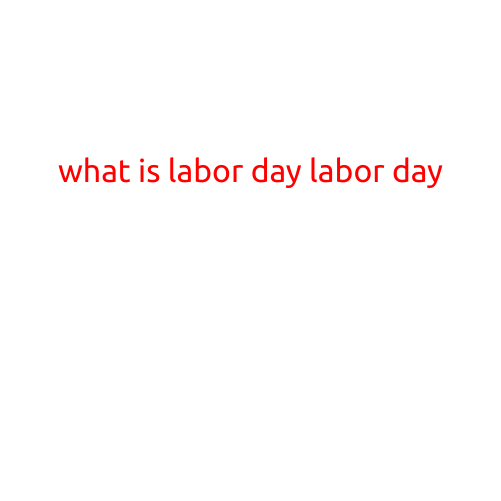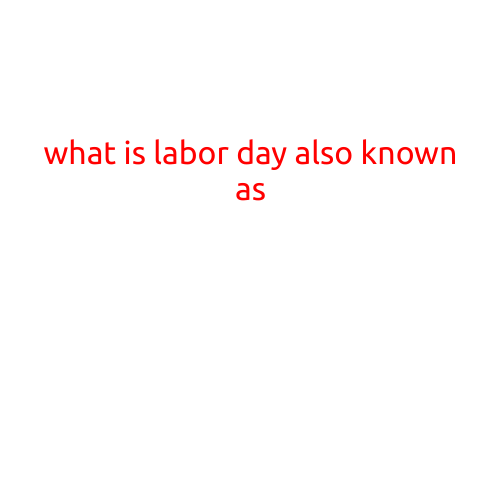
What is Labor Day Meant For?
Labor Day, celebrated on the first Monday of September in the United States, is a federal holiday that honors the American labor movement and the contributions that workers have made to the country’s growth and development. But what is Labor Day really meant for, and how did it come to be?
A Brief History
The concept of Labor Day dates back to the late 19th century, when the Industrial Revolution was in full swing. As manufacturing and industrial production skyrocketed, workers began to organize and demand better working conditions, higher wages, and more opportunities to improve their lives. The idea was born out of a need to recognize the tireless efforts and sacrifices made by workers, and to provide them with a chance to rest and recover from their hard work.
In 1882, Oregon became the first state to establish Labor Day, and other states soon followed suit. However, it wasn’t until 1894 that Congress passed a law making Labor Day a national holiday, following a series of strikes and labor disputes across the country.
The Original Purpose
Labor Day was not just a celebration of workers, but also a way to promote fair labor practices and improve working conditions. The holiday was meant to give workers a chance to rest and recharge, and to demonstrate solidarity among the working class. In its early years, Labor Day was marked by parades, picnics, and other celebrations, and was seen as an opportunity for workers to demand better wages, benefits, and working conditions.
Over time, however, Labor Day has evolved to become more focused on relaxation and leisure activities, as opposed to labor rights and working conditions. Today, the holiday is often associated with sales, barbecues, and sporting events, rather than the original intent to promote fair labor practices and improve working conditions.
What Labor Day is Meant For Today
Despite the shift in focus, Labor Day still holds significant importance for many workers and labor unions. For some, the holiday is a symbol of solidarity and a reminder of the struggles that workers have faced throughout history. Others see it as a chance to reflect on their own working conditions and the contributions that workers make to the economy.
In recent years, there has been a growing movement to revive the original purpose of Labor Day, with efforts to promote fair labor practices, improve working conditions, and increase minimum wage standards. Some cities and states have even adopted policies aimed at reducing income inequality and promoting economic growth for all.
Conclusion
At its core, Labor Day is meant to be a celebration of workers and their contributions to society. While the holiday has evolved over time, its original purpose still holds significance today. Whether you see Labor Day as a chance to relax and unwind, or as a reminder of the importance of fair labor practices, it is a holiday that is meant to recognize and honor the hard work and dedication of the American workforce.





